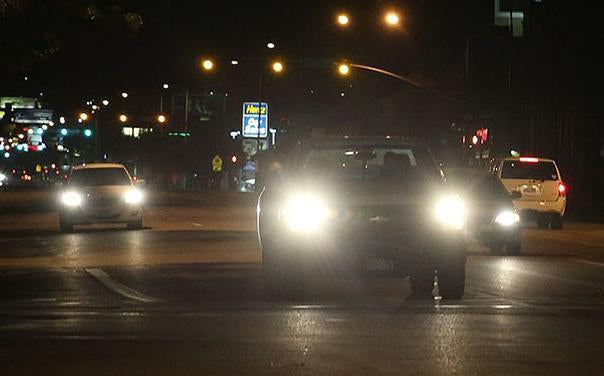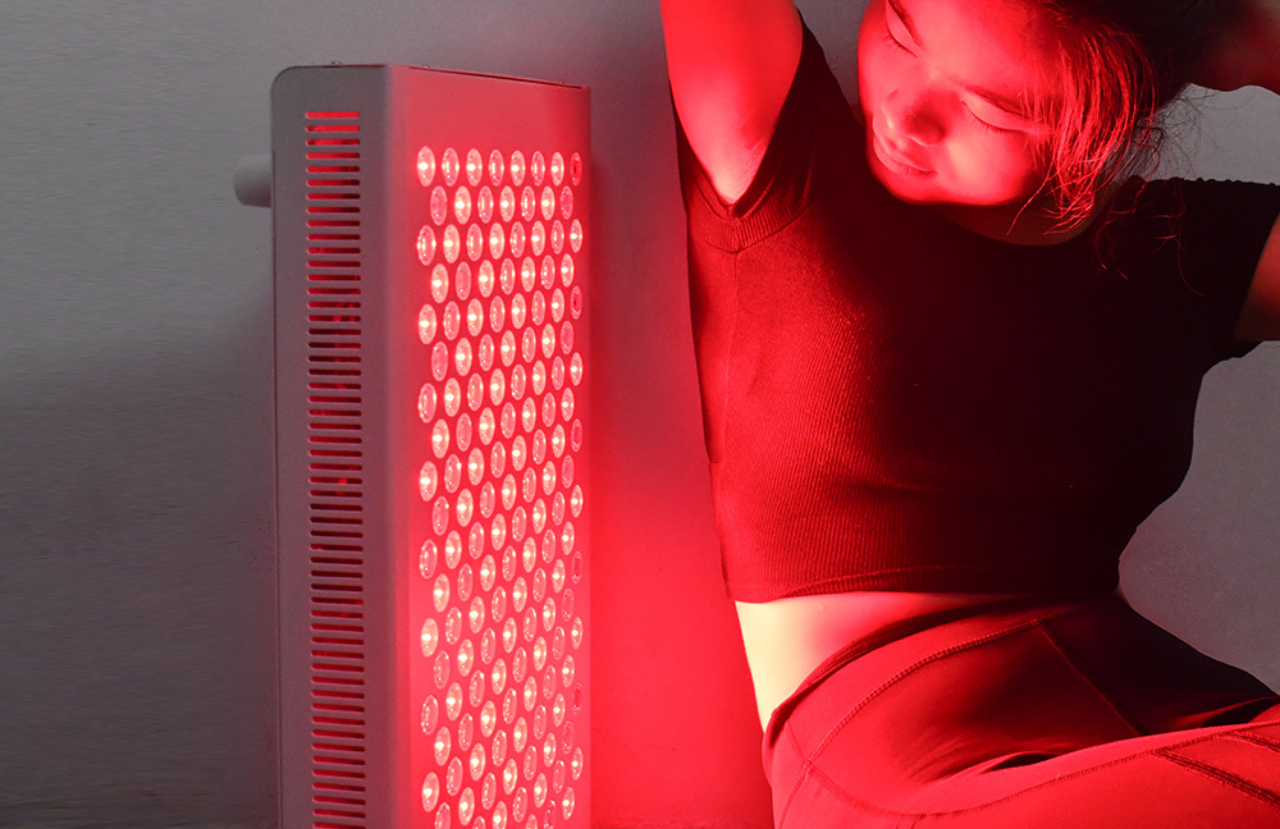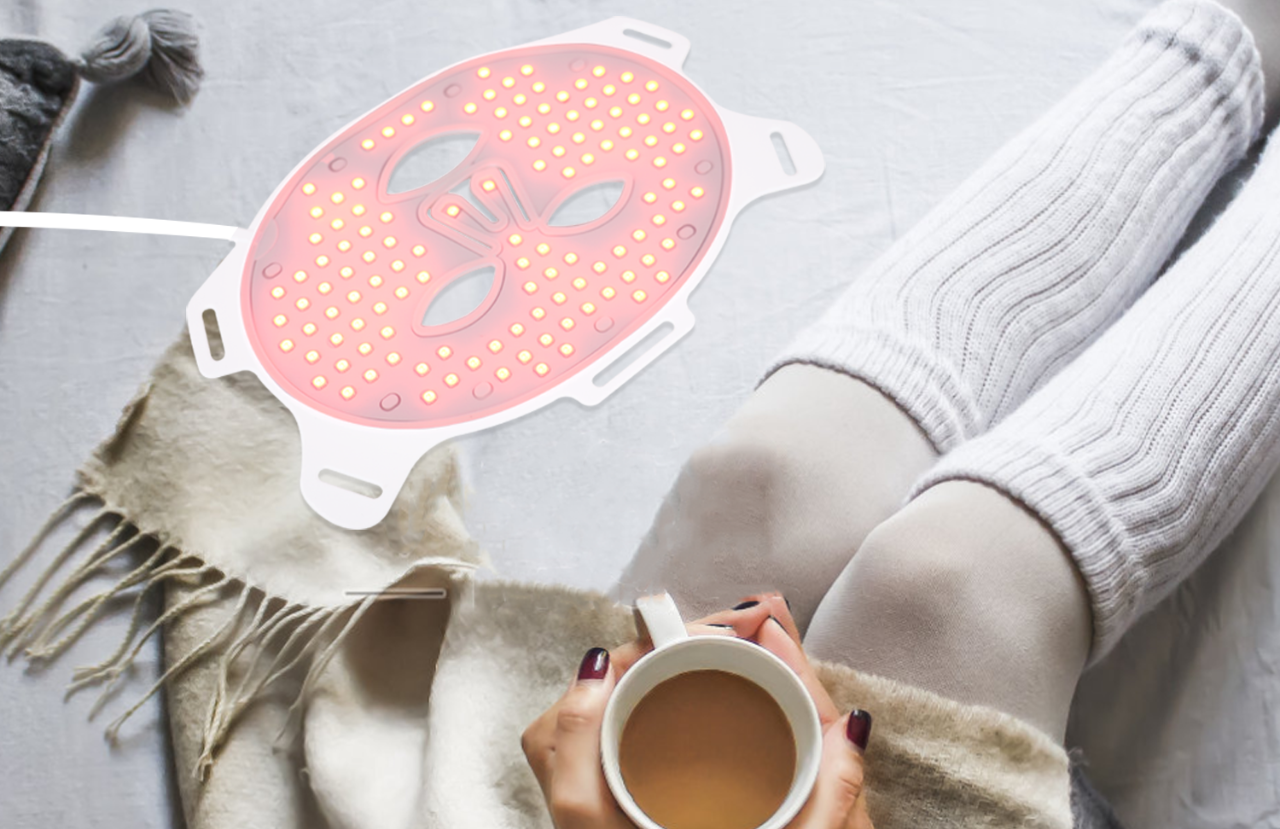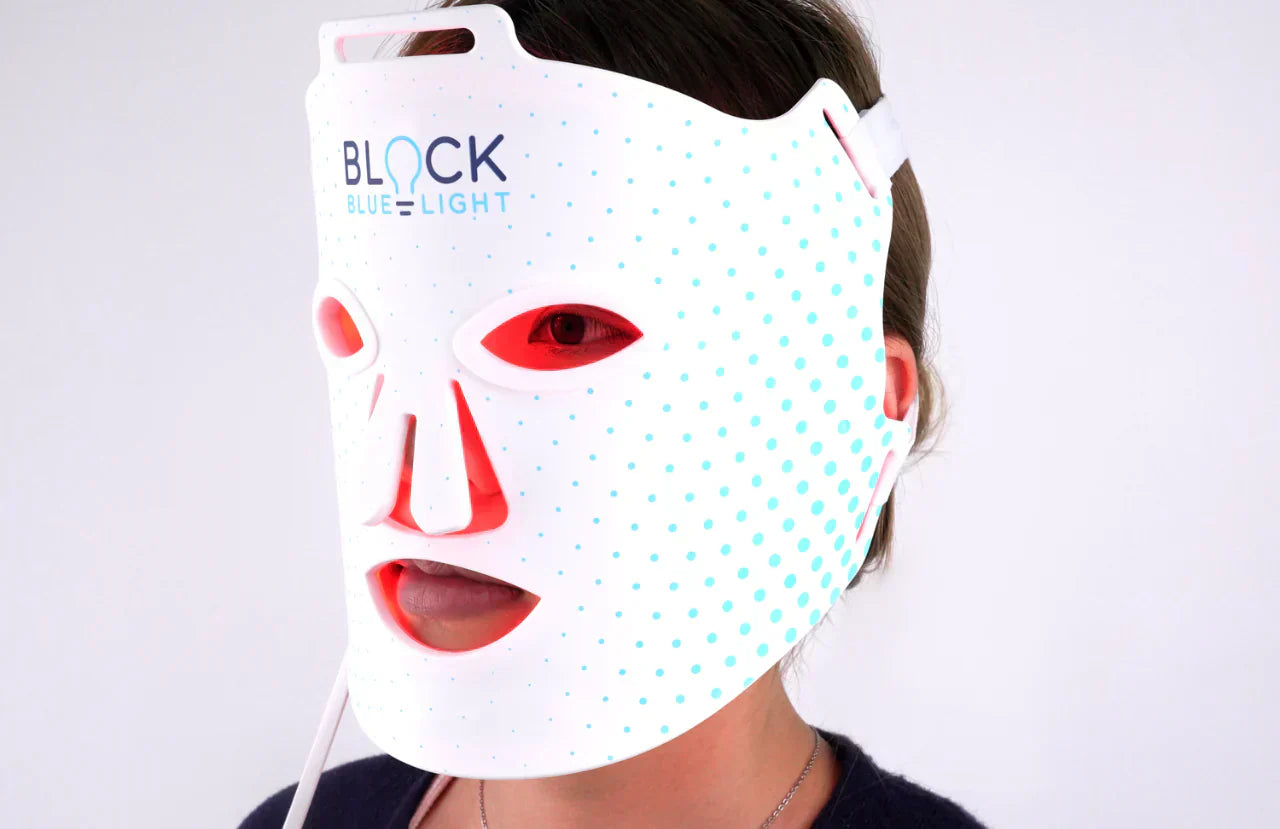Driving at night can be stressful: modern vehicles are now equipped with high powered LED headlights and street lights are now being replaced with LED versions.
Modern LED lights, although brighter and 80% more efficient than traditional bulbs are high in blue light. This can make night driving challenging and unsafe because of the glare caused by blue light. Due to this, many people are asking whether they can use blue light blocking glasses for night driving.ng.
Blue light blocking glasses, or blue blocking glasses as they are commonly called, are glasses with specially crafted lenses that filter or block the blue light coming from screens and LED lights.
These glasses counter the adverse health effects of blue light, which includes digital eye strain, disrupted circadian rhythm and disease.
Although the scientific health benefits of wearing blue light glasses during the daytime or evening remain undebated, the question is, are blue light blocking glasses good for night driving?
Read on to find out whether blue light blocking glasses for night driving are suitable, and whether it’s a good idea to invest in a pair or not.
What Are Blue Blocking Night Driving Glasses?
Driving at night or when there is low light can be stressful for people with poor eyesight and the elderly. The low light of the surroundings combined with the glare from oncoming headlights can make it difficult to see. This can make night-driving risky for yourself and others. Digital eye-strain can also cause health problems such as weakening your eyesight and migraines.
We get a lot of questions as to whether blue light blocking glasses for night driving are ok. These glasses have non-prescription, colored lenses that can be amber (lower strength) and orange-red (higher strength). The tint reduces glare by scattering the blue light coming from headlights and other sources. Because blue light has the shortest wavelength and carries the highest amount of energy, it is the most likely to cause glare when entering the eyes.
Are Blue Light Blocking Glasses Good for Night Driving?
The orange/red tint on blue light blocking glasses for night use reduces the amount of blue and green light entering the eye and reduces glare. However, this lowers the total light entering the eye and can be dangerous because it makes it difficult to see.
Some drivers claim that the reduction in headlight glare (HLG) enables them to see better, especially on rainy days. Despite this, medical tests have shown that tinted blue light blocking glasses for night driving do not improve vision. A study conducted in 2019 showed that drivers using these tinted glasses took a fraction of a second longer to detect pedestrians on the road which were wearing an orange shirt.
Another safety concern with wearing red/orange tinted blue light blocking glasses for night driving is that they remove all of blue and green light at night. The absence of blue and green light will increase the release of the sleep hormone melatonin. When melatonin levels rise it will promote much higher levels of sleepiness for the driver. This creates a serious safety concern causing the driver to not be sufficiently awake and alert, and they will not have sufficient reaction times required for safe driving, this could even lead to falling asleep at the wheel!
Therefore, we would not recommend that you use colour tinted blue light blocking glasses for night driving. However, using our blue light computer glasses won’t influence your vision whilst driving and will scatter blue light all the same.
If you want to wear blue light blocking glasses for driving at night, for medical reasons or to provide protection from oncoming headlights, we suggest you take a look at the our range of ScreenTime Computer Glasses. These glasses filter blue light by 50% across the entire spectrum.


The ScreenTime Blue Light computer glasses are designed to be used when exposed to digital screens and artificial lighting. They protect you from the side-effects of artificial lighting which includes eye-strain and migraines. Although they are designed for daytime use, they still cut down the peak wavelength of blue light (455nm), which is the main wavelength emitted by vehicle headlights and street lamps. Clear lens blue light glasses are the safest solution to safety filter down blue light while driving at night. The anti-glare and anti-reflective coating also protects your eyes from the glare from headlights.
Caution: Not All Blue Light-Blocking Glasses Are Equal
The spectrum of blue-light ranges from 400-500 nanometers. Many manufacturers of clear blue-light glasses reduce the effectiveness of the glasses at a particular range of wavelengths. This could mean that you are unprotected from the peak wavelength of blue light (455 nanometers). When looking for blue-light blocking glasses, check that they filter light across the entire blue light spectrum and filter 50% of blue light at 455nm. Otherwise, they will be ineffective.
What Are Blue Light Blocking Glasses Suitable For?
Blue light blocking glasses are used to counteract the negative effect of artificial light coming from screens and LEDs, which disrupts our circadian rhythm.
Circadian rhythm is the body’s internal clock, which regulates our sleeping and waking patterns. Every person’s circadian rhythm is different, but the average length is 24 and a quarter hours. Although this is longer than 1 day, the daylight resets our circadian rhythm, to allow us to fall asleep on time.

Exposure to artificial light reduces the secretion of melatonin, a hormone produced to encourage sleep as part of the natural circadian rhythm. This means that blue light after dusk can give you difficulty in falling asleep. In fact, a Harvard study showed that blue-light exposure at night is the primary reason people do not get adequate sleep. Research has also shown a lack of sleep to be linked with depression, obesity, and diabetes.
Blue light is not the only culprit. Research has shown that green light, which is also produced by LED lighting, screens, and devices disrupts melatonin. Therefore if your exposure to artificial light is during the night, it is essential that you buy glasses that block both blue light and green light up to 550nm, so all daytime signalling is removed at night. Our night-time nightfall blue light glasses provide shielding from both green and blue light.
It’s good to use blue light blocking glasses if you have difficulty falling asleep or your work requires you to use screens or electronic devices after dusk.
Do Blue Light Blocking Glasses Help With Night Blindness?
Night blindness (medical term: Nyctalopia) is the inability to see properly in the dark. People with night blindness are not completely blind, as the name implies -they simply have difficulty seeing clearly when the light is low.
Unlike poor eyesight, this is not a disease itself, but is an indicator of an underlying problem.
Many issues can cause night blindness. They include Vitamin A deficiency (which is the most common reason). Other more serious causes include Glaucoma, cataracts, and Retinitis pigmentosa.
People experiencing night blindness feel worried about driving at night.
Symptoms of night blindness depend on the underlying medical condition, but they can include:
- Blurry vision,
- Difficulty seeing into the distance,
- Sensitivity to light,
- Migraines and
- Nausea
- Vomiting.
For people with night-blindness, tinted blue light blocking glasses for night driving will most likely do no better than for the average person. The same issues of reduced visibility of pedestrians in orange/red will arise.
However, quality clear blue light computer glasses may somewhat reduce the harmful effects of blue light and provide the other benefits of blue light shielding and protecting the eyes.
How to Improve Vision When Driving at Night?
- If you wear prescription glasses, get regular checkups to keep your eyeglasses up-to-date.
- Consider getting an anti-glare or anti-reflective coating on your eyeglasses, or buying anti-glare blue light glasses.
- Wipe your glasses before driving because smudges can amplify glare.
- Keep your windshield clean: Streaks and dust on the windscreen can amplify glare, yet drivers often forget to do this. Polish the windshield before every drive from inside and out. If your windshield gets cracked, replace it immediately.
- Keep your windshield wipers in working condition -you never know when it will rain. Make sure that the tank for the window cleaning solution is full before you set out.
- It’s easier to see when the road ahead of you is lit well. Keep your headlights clean and working.
- Avoid staring at oncoming headlights while driving. Since eyes can tire out from staring at objects which are too close, take breaks from looking at the car ahead of you.
- Take short breaks when driving long distances. It’s recommended to take a minimum of 15 minutes break when driving for two hours. Two hours is the maximum limit for driving continuously. When you take a break, change your position -get out of the car or go for a walk.
- Keep dashboard lights dim to reduce eye strain.
- If you sense your eyesight deteriorating, or symptoms of eye-strain, see your eye doctor immediately.
What to Take Away From This:
Night driving can be stressful, so many people look to buy blue-blocking glasses for night driving. Though some drivers claim they help reduce glare, orange or red tinted glasses have not been scientifically proven to improve clarity while driving at night in fact the reduced light can be dangerous.
Wearing tinted or clear blue-blocking glasses (in general) has many health benefits, which include improving sleep, reducing eye-strain and reducing the chance of obesity, depression and heart disease, which has been scientifically linked to blue light. If you wish to wear blue-light blocking glasses while driving at night, you can buy clear lens blue light computer glasses that filter 50% of blue light across the entire spectrum and more specially target the 455nm which is the peak wavelengths of blue light emitted by headlights and street lighting.
Night blindness cannot be fixed by wearing blue-light blocking glasses, but it can help reduce glare and eye-strain.
To improve vision while night driving, keep your windshield and glasses clean, take frequent breaks while driving and get regular eye check-ups.
References
Alex D. Hwang, M. T.-B. (2019). Comparison of Pedestrian Detection With and Without Yellow-Lens Glasses During Simulated Night Driving With and Without Headlight Glare. Retrieved from JAMA Opthalmology: https://jamanetwork.com/journals/jamaophthalmology/article-abstract/2740739
Driving Ergonomics, Loughborough University. (n.d.). FAQ. Retrieved from http://drivingergonomics.lboro.ac.uk/faq.html#:~:text=A%3A%20The%20Highway%20Code%20recommends,car%2C%20go%20for%20a%20walk.
Dudley, K. (2019). Weekend catch-up sleep won’t fix the effects of sleep deprivation on your waistline. Retrieved from Harvard Health Publishing: https://www.health.harvard.edu/blog/weekend-catch-up-sleep-wont-fix-the-effects-of-sleep-deprivation-on-your-waistline-2019092417861
Harvard Health Publishing. (2020). Blue light has a dark side. Retrieved from https://www.health.harvard.edu/staying-healthy/blue-light-has-a-dark-side
Rauch, K. (2018). Night Driving Glasses May Hurt, Not Help. Retrieved from American Academy of Opthalmology: https://www.aao.org/eye-health/tips-prevention/night-driving-glasses-may-hurt-not-help






